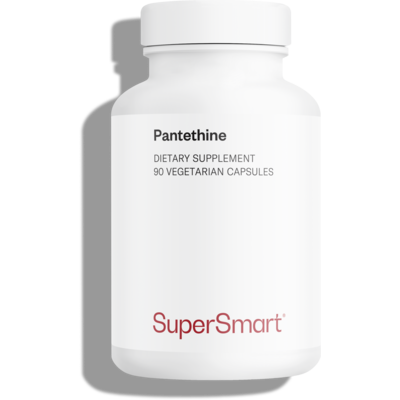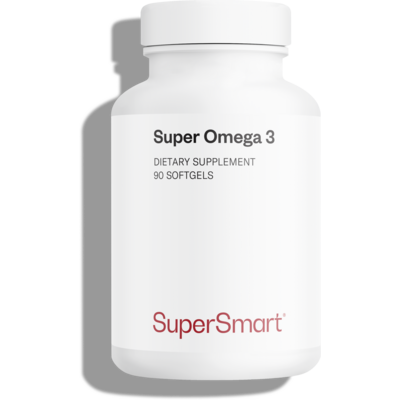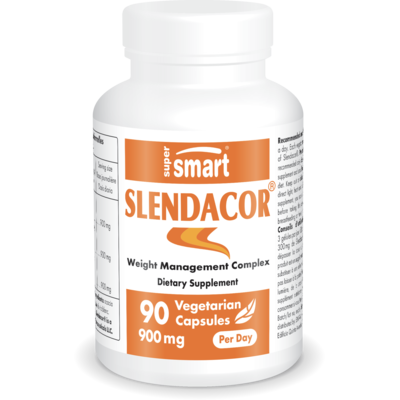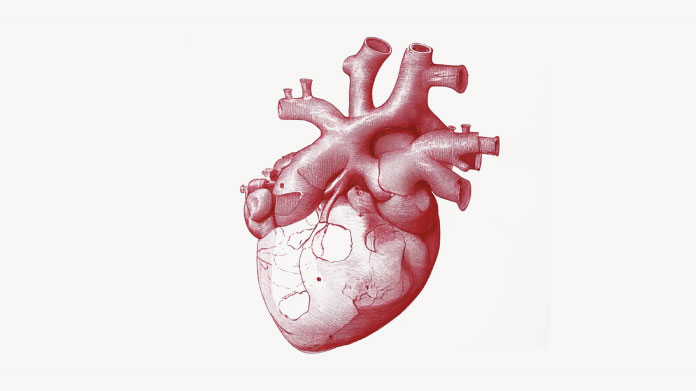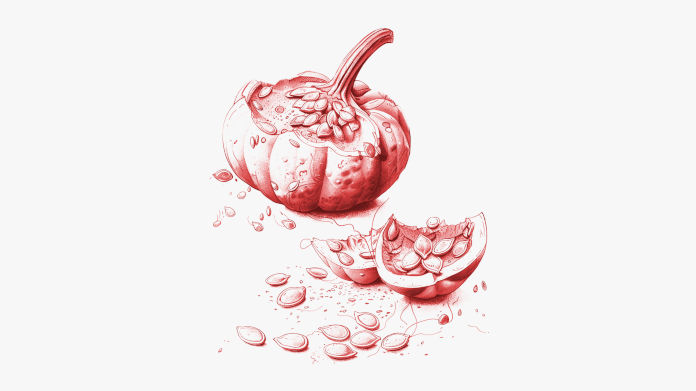Hypertriglyceridaemia: what can you do about it ?
Having high blood triglycerides can pose a risk to health. The good news is there are ways in which it can be dramatically lowered. Read on for all the details.

What exactly are triglycerides?
Like cholesterol, triglycerides are a type of lipid. They are produced when we consume fats, especially saturated fats, as well as when the liver converts them from sugars and alcohol.
These insoluble fatty acids are stored in adipose tissue for release as and when the body needs energy.
The problem is that an excessively high level of blood triglycerides is a risk factor for certain health conditions such as cardiovascular disease.
What constitutes a healthy blood triglyceride level?
The upper level recommended for blood triglycerides is 1.7 mmol/L of blood.
A level below that is considered normal and safe.
Elevated triglycerides: what are the symptoms?
Having a high level of blood triglycerides is generally asymptomatic. In other words, you probably won’t realise there’s a problem unless you have a blood test...
In more severe forms, however, a number of symptoms may develop:
- abdominal pain;
- a change in general condition;
- the appearance of yellowish skin lesions, called eruptive xanthomatosis.
What are the risks?
In the short term, a high blood triglyceride level known as hypertriglyceridaemia, will not cause pain, fatigue or loss of energy.
But in the medium and long term, it presents a real risk to health. It promotes the onset of atherosclerosis (the formation of fatty deposits in the arteries). The arteries may become clogged, potentially blocking blood flow, which can result in thrombosis, phlebitis, heart attack or stroke.
Causes of hypertriglyceridaemia
Elevated blood triglyceride levels are usually caused by poor dietary habits. The risk is particularly high in cases of excessive consumption of sugars, alcohol and unhealthy fats.
The problem may originate in metabolic disorders such as diabetes, excess weight and obesity.
Hypertriglyceridaemia can also be caused by genetic abnormalities.
There are also several drugs that can increase blood triglycerides such as corticosteroids, as well as some anti-psychotic and anti-viral medications, and certain contraceptives.
Finally, other factors likely to affect triglyceride levels include:
- advancing age;
- smoking;
- lack of exercise.
What can you do about elevated triglycerides?
As the problem is usually asymptomatic, the first step is to talk to your doctor and arrange to have a blood test if you suspect you have hypertriglyceridaemia.
If it turns out you do have elevated triglyceride levels, there are a number of ways you can address the problem.
Change your diet
The most urgent step is to modify your eating habits. First and foremost, you need to reduce your consumption of fast-release sugars including fructose. Eating more vegetables and wholegrains will always help and yield benefits.
You’ll also need to eat less saturated fat, reducing your consumption of butter, charcuterie, cheese, fatty meats, and above all, processed foods.
Instead, you should focus on fish including oily fish, and lean meats, as well as water, olive oil, avocados, dried fruit…
Drink less alcohol and coffee, and don’t smoke
If you’re a regular drinker, reducing your consumption of alcohol should be a high priority.
Stimulants are also aggravating factors. Coffee and triglycerides don’t mix... and the same goes for cigarettes.
Adopt new, healthier habits
Apart from poor dietary habits, certain lifestyle factors can also promote high blood triglycerides. These include stress, a sedentary lifestyle and excess weight.
Taking regular exercise, going out more often and adopting an altogether more positive lifestyle will definitely have a beneficial effect.
What if it’s caused by medication?
Keep in mind that certain drug treatments can increase blood triglycerides. If you’re at all worried, speak to your doctor.
How are elevated triglycerides treated?
Drugs
Your doctor may ultimately prescribe lipid-lowering drugs.
Of course, taking such medications is not without risk and may indeed cause side-effects. They should always be taken under regular medical supervision.
Natural substances that can help
There are several natural substances that can help in the case of elevated triglyceride levels:
- one such option is omega-3 essential fatty acids which help maintain normal triglyceride levels (1);
- pantethine, a derivative of vitamin B5, is being studied for its potential to lower excess triglycerides and ‘bad’ cholesterol (see Pantethine) (3);
- the composition of Slendacor (a blend of extracts of Curcuma longa root, Moringa oleifera leaf and Murraya koenigii leaf) may also have a positive effect on cholesterol and triglyceride levels (4-6);
- last but not least, there’s short-chain triglycerides (7), which are rapidly converted into ketones and not stored in adipose tissue (you’ll find them, for example, in Organic MCT Oil).
SuperSmart ADVICE
References
- Krupa K, Fritz K, Parmar M. Omega-3 Fatty Acids. [Updated 2023 Jan 17]. In: StatPearls [Internet]. Treasure Island (FL): StatPearls Publishing; 2023 Jan-. Available from: https://www.ncbi.nlm.nih.gov/books/NBK564314/
- Villano I, La Marra M, Allocca S, Ilardi CR, Polito R, Porro C, Chieffi S, Messina G, Monda V, Di Maio G, Messina A. The Role of Nutraceutical Supplements, Monacolin K and Astaxanthin, and Diet in Blood Cholesterol Homeostasis in Patients with Myopathy. Biomolecules. 2022 Aug 14;12(8):1118. doi: 10.3390/biom12081118. PMID: 36009012; PMCID: PMC9405860.
- Evans M, Rumberger JA, Azumano I, Napolitano JJ, Citrolo D, Kamiya T. Pantethine, a derivative of vitamin B5, favorably alters total, LDL and non-HDL cholesterol in low to moderate cardiovascular risk subjects eligible for statin therapy: a triple-blinded placebo and diet-controlled investigation. Vasc Health Risk Manag. 2014 Feb 27;10:89-100. doi: 10.2147/VHRM.S57116. PMID: 24600231; PMCID: PMC3942300.
- Vera-Ramirez L, Pérez-Lopez P, Varela-Lopez A, Ramirez-Tortosa M, Battino M, Quiles JL. Curcumin and liver disease. Biofactors. 2013 Jan-Feb;39(1):88-100. doi: 10.1002/biof.1057. Epub 2013 Jan 10. PMID: 23303639.
- Kashyap P, Kumar S, Riar CS, Jindal N, Baniwal P, Guiné RPF, Correia PMR, Mehra R, Kumar H. Recent Advances in Drumstick (Moringa oleifera) Leaves Bioactive Compounds: Composition, Health Benefits, Bioaccessibility, and Dietary Applications. Antioxidants (Basel). 2022 Feb 16;11(2):402. doi: 10.3390/antiox11020402. PMID: 35204283; PMCID: PMC8869219.
- Kundimi S, Kavungala KC, Sinha S, Tayi VNR, Kundurthi NR, Golakoti T, Davis B, Sengupta K. Combined extracts of Moringa oleifera, Murraya koeingii leaves, and Curcuma longa rhizome increases energy expenditure and controls obesity in high-fat diet-fed rats. Lipids Health Dis. 2020 Aug 28;19(1):198. doi: 10.1186/s12944-020-01376-7. PMID: 32859217; PMCID: PMC7455912.
- Schönfeld P, Wojtczak L. Short- and medium-chain fatty acids in energy metabolism: the cellular perspective. J Lipid Res. 2016 Jun;57(6):943-54. doi: 10.1194/jlr.R067629. Epub 2016 Apr 14. PMID: 27080715; PMCID: PMC4878196.
Keywords
2 Days
repeat customer
recommended by my doctor. easy to create an account. Discounts and specials are appreciated. packaging and delivery is dependable. Capsules easy to digest. I've had some some capsules and tablets that are broken inside their bottles.
Kokee
6 Days
Order was shipped on time and packaged…Wonderful Jobs!
Order was shipped on time and packaged excellently.
DMHoge
12 Days
great products and prices
great products and prices
Marie
18 Days
Easy to navigate site
Easy to navigate site, had what I was searching for, good price. easy order-check out
James Tucker
24 Days
My skin is clearing up nicely!
Pretty good for my skin so far.
Christian
27 Days
The new packaging is excellent
The new packaging is excellent - finally! No more squashed boxes and torn envelopes.
GORAN
27 Days
Great Product
Great Product
Larry Garrett
32 Days
Quick shipping
Quick shipping; good price. No issues!
Mary McCarty
33 Days
Thr product is very good and is helping…
Thr product is very good and is helping me on my health. Then is always on time
LUGO Luz
36 Days
Buying was fine
Buying was fine. I had problems with the website not recognizing my login info, and had to call to get it fixed. Other than that, everything was good.
David S. Clark
36 Days
Your super maca and super ginseng are…phenomenal
Your super maca and super ginseng are phenomenal supplements that compliment each other when taking them together. Fantastic feeling of well-being and lots of mid day energy without the crash.
Keith Mason
39 Days
I have had amazing results with every…
I have had amazing results with every supplement I've purchased. I am extremely satisfied with this company
kirstin Torres
39 Days
Fine products
Fine products . They are on the leading edge of online supplements. The only issue -so far-is they sometime run out of subscription items.
Jason Argos
42 Days
The ordering process is very user…
The ordering process is very user friendly and the products always come in a timely manner.
CARTER Rhonda
43 Days
The price for Dr
The price for Dr. Pero's AC-11 is reasonable and in line with his views. (my former colleague). Keep it pure.
CAMPBELL Clayton


